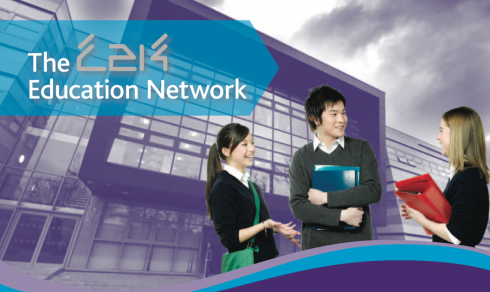What are the top 3 issues in ni right now? Unemployment…and…?
— Keith Anderson (@keithbelfast) September 14, 2012
@keithbelfast Equality, Opportunity and Vision. As in the lack of these things.
— Matt Johnston (@cimota) September 14, 2012
@keithbelfast Okay? Segregation, unemployment and cronyism
— Matt Johnston (@cimota) September 15, 2012
My first answers; Equality, Opportunity and Vision
My second answers; Segregation, unemployment and cronyism
The second answers are, essentially, watered down versions of the first answers.
Equality
At an RSA-inspired “Civic Innovation” workshop organised by @denisstewart, I heard an impassioned speech by Dr John Barry about the need for equality in our society, about how we are divided between the haves and the have nots. And how equity in society would solve many of our ills. While I agree it would solve many problems, it would create more problems because we have not yet overcome greed. There is also the aspect of human endeavour and the need for reward. For someone to work 70 hours a week in a manual job and be paid well for it and for someone else to spend that time developing a blister on their thumb from their state-subsidised XBox is not an equitable situation. While there are many deserving cases of equality, I can point at many who need to take their future in their own hands.
The sub-issue of segregation is much more easy to resolve. I drove up to the new e3 Campus of Belfast Metropolitan College and my satnav (I always use my satnav) took me up past the peace wall, a road I had never driven before.
If ever you needed evidence that the peace process in Northern Ireland was a sham, this is it. We still have communities divided by fear, we still have riots in deprived areas of our society (over funding for ‘community groups’). The truth being that the terrorists never went away, the government just started paying them to stop killing people.
We are a society that, if it was an individual, would be given treatment for post-traumatic stress. Our emotionally damaged hive-psyche seems to limp from one victim mentality to the next. You only have to look at this rubbish.
Our politicians are, almost without exception, partitionist. They thrive on dividing the people among primitive tribal lines. They can be denominational (catholic, protestant), nationalistic (republican, nationalist, unionist, loyalist), urbanist (urban, rural), geographic (east of the Bann, west of the Bann, NorthWest, Belfast) and ridiculous (Israel, Palestine). While we let these small-minded bigots rule us, is it any wonder our society does not progress.
Opportunity
I have never had trouble getting a job. My opportunity was always limited by my desire to do things. Like Rory McIlroy I was mostly shielded from the Troubles. It was a self-imposed exile. I socialised with friends from every segregation in society. It didn’t matter which religion or region you were from.
I see opportunity everywhere.
I can understand that this vision of opportunity is not held by all. And when there is no opportunity in sight, corrupt elements are able to take the hopes of the young (and impressionable) and turn them to work. Look at the average rioter in the recent North Belfast disturbances. These are children of the era of Peace.
Unemployment isn’t the only issue here. Dissatisfaction is an issue. A feeling of discomfort exercised into rage by community leaders and partitionist politicians. And those who excel, become community leaders and politicians. How many of these young people have the opportunity to escape this tiny circle of unrepentant hate?
Vision
I was born in 1972 and, as such, I’m a child of my time. My nightmares were of the Cold War turning into a Hot War (this did not happen). Of being beaten as I walked home from school on account of my school uniform colour which identified my parents religion (this did happen). The present, depressing and apocalyptic, was never good enough.
Given three score and tend years and an expectation that I will die around 2050 is sobering. I haven’t much time left to “make a dent in the universe”. To enact some real changes. With modern medical science, however, I might expect to live to 100 years old. Or even more. That means that my legacy doesn’t begin in 2050 but it might stretch to 2100. My legacy becomes that of a 22nd Century Society.
My vision aligns with what I want “Our Wee Country” to be in the year 2101. I can afford this length of vision because I’m not an elected official worried about whether my constituency will vote me back in in three years. I can afford this because I am convinced that I might see 2101.





